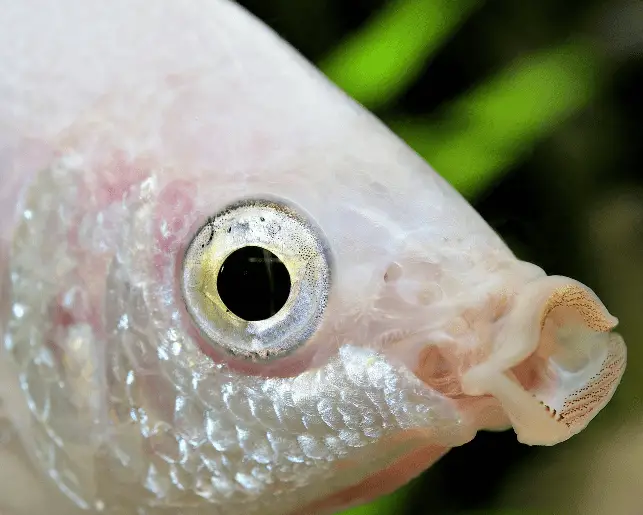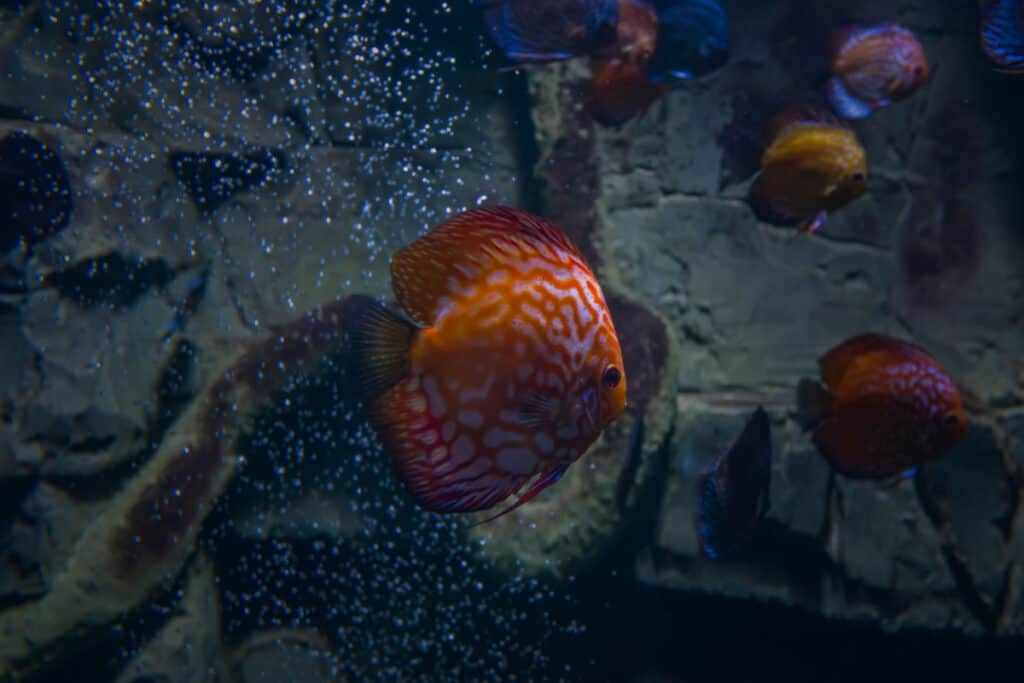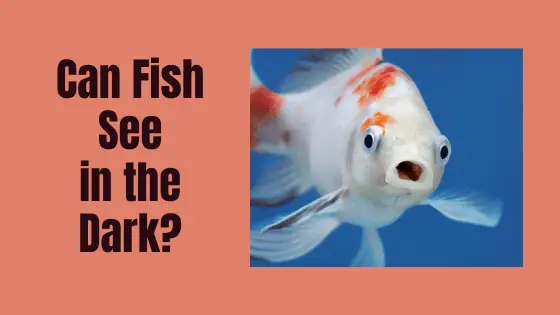It’s fascinating how deep-sea fish can navigate their underwater worlds in the absence of sunlight. Many of these species are equipped with special sensors that allow them to navigate the darkness. But can regular fish also see in the dark?
Some fish species can see in the dark. Their eyes are designed to capture even the faintest traces of light and illuminate their surroundings. They also have other senses, such as lateral lines, that allow them to navigate effectively in the dark.
As you can see, the answer isn’t as clear-cut as you’d imagine. Aside from their eyes, fish have other sensors that help them navigate through darkness, giving us the impression that they can ‘see’ clearly in the dark. In this article, we’ll take a closer look at how fish see things in the dark.
Can Fish See in the Dark?
Most fish can see in the dark, with some species being able to see in the dark better than others. However, they don’t use their eyes to navigate in the dark. Instead, they use their lateral lines, which allow them to better sense nearby animals and objects through pressure changes in the water.
So while fish can’t fully ‘see’ their surroundings in the dark, they can sense what’s happening around them and navigate their space accordingly.

Do Aquarium Fish Need Lights?
Most people with fish are confused about how long to leave the aquarium lights on. However, fish, like humans, require alternating periods of light and darkness to function optimally.
Aquarium fish need lights to ensure their internal biological processes are carried out normally. Leaving these fish in the dark can cause lowered immunity and even result in the loss of their colours. However, you don’t need a special aquarium light – the light in your room should suffice.
Aside from looking pretty, fish need light just like any other animal. In fact, some fish are known to lose their appetite when they don’t get enough light during the day.
Are Fish Happier in the Dark?
While a period of darkness is essential for fish to regulate their biological cycles, it’s unlikely that fish prefer darkness over light or vice-versa.
Fish are not happier in the dark and are known to swim around frantically, bumping into aquarium walls and ornaments when someone suddenly and unexpectedly switches off the lights. While they need darkness to survive, the switch between light and darkness must be regular and not erratic.
How Fish Eyes Work.
Fish have monocular vision as their eyes are placed on either side of their head. As such, they can’t accurately pinpoint the location of an object in front of them.
Additionally, a fish’s eye lacks corneal muscles and has a spherical lens. This structure means that a fish can’t focus closer or further away on objects, and its range of vision is fixed. And finally, a fish’s pupil can’t contract or expand and hence can’t allow more light.
As such, most fish are not equipped to see effectively in the dark.
Instead, fish eyes are adept at sensing minute changes in light to which they respond accordingly. Their sensitivity to light, coupled with the presence of neuromasts, allows them to navigate their surroundings even in darkness.

Do Fish Sleep?
You’ve likely noticed that fish rarely stop swimming around, even when it’s dark. So do fish ever sleep?
Fish sleep during a twenty-four-hour cycle, but not as most mammals do. A fish will sleep with its eyes open and continue swimming around while it sleeps. They will reduce their activity and metabolic rate while remaining alert to danger.
Your aquarium fish may eventually realise it’s not in danger and find a spot to wedge itself while it rests. However, as mentioned, fish don’t close their eyes and sleep as we do – they simply relax and float around with their eyes open.
Signs Your Fish Is Sleeping.
Because fish keep their eyes open, it can be unclear whether they’re asleep or not. However, there are a few signs to look out for to determine whether your fish is sleeping.
- Your fish starts to move around a lot slower than it usually does.
- It may bump into objects in the aquarium more often.
- Sometimes a sleeping fish will simply hover in place as if it’s in a trance.
If your fish is sleeping while the light is on, it’s best to switch off the lights and give them a period of complete rest.
Is Darkness Essential for Fish?
You likely already know that fish can lose their colours and appetite and fall sick without enough light. But do fish need darkness as much as they need light?
Darkness is essential for fish as it provides them a signal to wind down and rest after a period of activity. If the darkness is gradual and occurs with the setting sun, your fish will calmly begin to reduce their activity and start to rest.
However, it’s crucial to avoid suddenly switching off the lights as this may frighten and upset your fish, making them stressed. Instead, you should switch off your aquarium light in concert with the natural light cycle so your fish are comfortable.
Note: While darkness is essential, fish also require at least eight to ten hours of daylight to function optimally. So, to ensure your fish are healthy, you should ensure they’re getting enough light, whether natural or artificial.
This video gives you more information about fish and darkness in their natural environment.
Final Thoughts.
Fish can’t properly see in the dark, but they require darkness to function optimally. Without a regular period of darkness, they can become sick due to a lack of rest and recovery.
When allowing light into your aquarium, ensure you stay within eight to ten hours of light, offset by twelve to sixteen hours of darkness. Too much light can cause algae to grow in excess around the tank, and the algal bloom will eventually dirty your tank.

